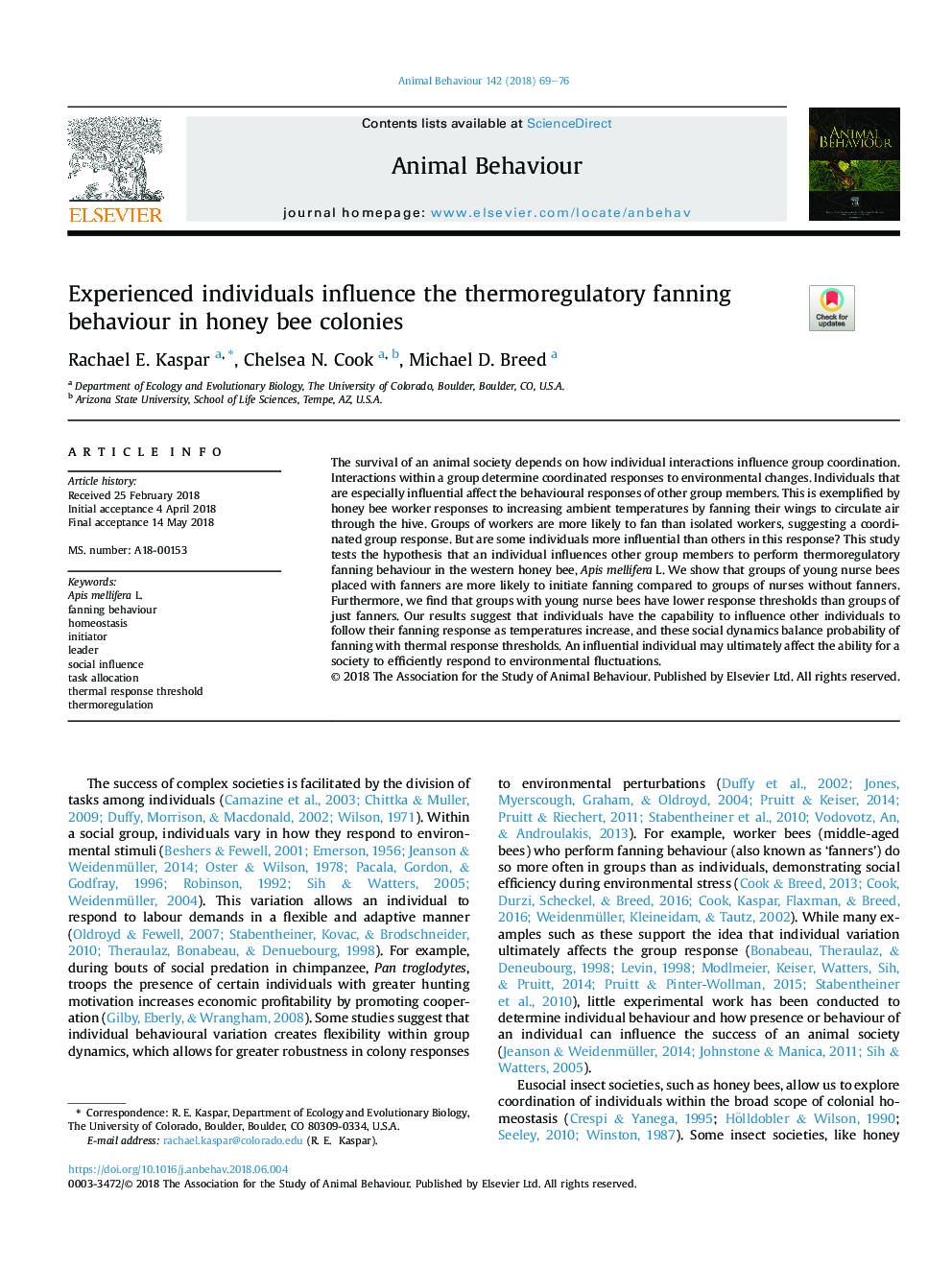| Article ID | Journal | Published Year | Pages | File Type |
|---|---|---|---|---|
| 8488419 | Animal Behaviour | 2018 | 8 Pages |
Abstract
The survival of an animal society depends on how individual interactions influence group coordination. Interactions within a group determine coordinated responses to environmental changes. Individuals that are especially influential affect the behavioural responses of other group members. This is exemplified by honey bee worker responses to increasing ambient temperatures by fanning their wings to circulate air through the hive. Groups of workers are more likely to fan than isolated workers, suggesting a coordinated group response. But are some individuals more influential than others in this response? This study tests the hypothesis that an individual influences other group members to perform thermoregulatory fanning behaviour in the western honey bee, Apis mellifera L. We show that groups of young nurse bees placed with fanners are more likely to initiate fanning compared to groups of nurses without fanners. Furthermore, we find that groups with young nurse bees have lower response thresholds than groups of just fanners. Our results suggest that individuals have the capability to influence other individuals to follow their fanning response as temperatures increase, and these social dynamics balance probability of fanning with thermal response thresholds. An influential individual may ultimately affect the ability for a society to efficiently respond to environmental fluctuations.
Related Topics
Life Sciences
Agricultural and Biological Sciences
Animal Science and Zoology
Authors
Rachael E. Kaspar, Chelsea N. Cook, Michael D. Breed,
